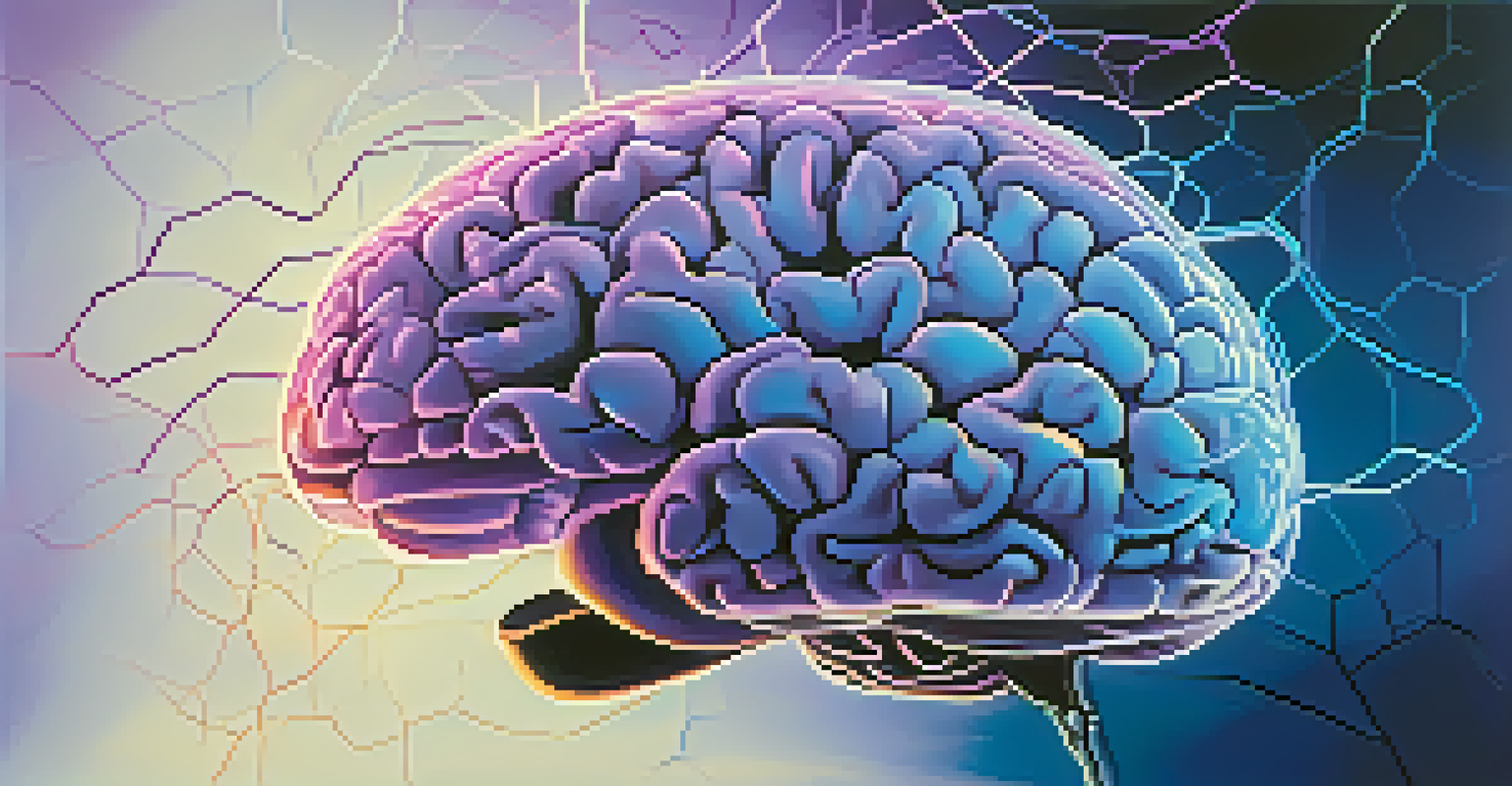Psychedelics and Their Role in Treating Anxiety Disorders

Understanding Anxiety Disorders and Their Impact
Anxiety disorders are more than just occasional worries; they affect millions of people globally, leading to persistent feelings of fear and unease. These disorders can manifest in various forms, such as generalized anxiety disorder (GAD), panic disorder, and social anxiety disorder. The debilitating nature of anxiety can hinder daily functioning, affecting relationships, work, and overall quality of life.
Psychedelics can provide a profound sense of emotional healing, helping individuals to confront and reframe their anxieties.
Traditional treatments, including therapy and medication, often provide relief but may not work for everyone. Some individuals experience side effects from medications or fail to respond to them, leaving them seeking alternative solutions. This gap in effective treatment options has led to renewed interest in psychedelics as a potential therapeutic approach.
Recent studies suggest that psychedelics like psilocybin and MDMA may have properties that can help reduce anxiety symptoms. By promoting new neural connections and increasing emotional openness, these substances offer a different way of experiencing and addressing anxiety, making them a fascinating area of research.
What Are Psychedelics and How Do They Work?
Psychedelics are a class of substances that alter perception, mood, and cognitive processes. Common examples include LSD, psilocybin (found in magic mushrooms), and ayahuasca. These substances work primarily by affecting serotonin receptors in the brain, which play a crucial role in regulating mood and anxiety.

The experience induced by psychedelics can vary widely, often described as a profound shift in consciousness. Many users report heightened emotional awareness, a sense of interconnectedness, and even mystical experiences. This altered state can facilitate deep introspection and emotional processing, which may be beneficial for those grappling with anxiety.
Psychedelics Show Promise for Anxiety
Recent studies indicate that psychedelics like psilocybin and MDMA may effectively reduce anxiety symptoms and promote emotional healing.
Moreover, psychedelics have been shown to promote neuroplasticity, the brain's ability to reorganize itself by forming new neural connections. This can potentially lead to lasting changes in how individuals process emotions, helping them to manage anxiety in healthier ways beyond the immediate effects of the substance.
The Role of Research in Psychedelic Therapy
Scientific interest in psychedelics surged in recent years, leading to a wave of research exploring their therapeutic potential. Clinical trials have been conducted to evaluate the efficacy of psychedelics in treating various mental health conditions, including anxiety disorders. These studies often focus on the safety, dosage, and therapeutic context in which these substances are used.
The mind is like a parachute. It doesn't work unless it's open.
One notable study involved administering psilocybin to patients with life-threatening cancer diagnoses, revealing significant reductions in anxiety and depression. Participants reported a greater sense of peace and acceptance regarding their situation, highlighting the potential of psychedelics to facilitate emotional healing and coping mechanisms.
As research continues to unfold, regulatory bodies are also beginning to take notice. Some jurisdictions have started to loosen restrictions on psychedelic substances for therapeutic use, paving the way for more extensive clinical applications in mental health treatment.
Psychedelics and Their Effects on Anxiety
The effects of psychedelics on anxiety can be profound, often providing immediate relief during the experience itself. Users frequently report a decrease in anxious thoughts and a newfound perspective on their worries. This temporary escape can be life-changing, offering insights that help individuals reframe their relationship with anxiety.
However, the therapeutic effects may extend beyond the experience. Many participants in studies report lasting improvements in their anxiety levels long after the session has ended. This suggests that the insights gained during a psychedelic experience can lead to meaningful behavioral changes and coping strategies.
Set and Setting Matter in Therapy
The success of psychedelic therapy significantly depends on the individual's mindset and the environment in which the experience occurs.
It’s important to note that the effects can vary greatly among individuals, and not everyone may respond positively. Proper guidance and a safe environment are crucial to ensure that the experience is beneficial rather than overwhelming or distressing.
The Importance of Set and Setting in Psychedelic Use
The concept of 'set and setting' is vital in psychedelic therapy. 'Set' refers to the individual's mindset, including their mood, expectations, and previous experiences, while 'setting' encompasses the physical and social environment in which the substance is consumed. Together, these factors can significantly influence the outcome of a psychedelic experience.
Creating a supportive environment is essential for individuals undergoing psychedelic therapy. This can involve having trained therapists present to guide the experience, offering reassurance and helping participants navigate any challenging emotions that arise. The right setting can enhance feelings of safety and openness, allowing for a deeper exploration of underlying anxiety.
Ultimately, understanding and respecting the importance of set and setting can help maximize the therapeutic benefits of psychedelics, ensuring that they are used as tools for healing rather than as mere recreational substances.
Challenges and Considerations in Psychedelic Therapy
While the potential of psychedelics in treating anxiety disorders is promising, several challenges remain. Stigma surrounding these substances can hinder research and acceptance within the medical community. Additionally, the regulatory landscape is complex, with many psychedelics still classified as illegal in various parts of the world.
Moreover, not everyone is an ideal candidate for psychedelic therapy. Individuals with a personal or family history of certain mental health conditions, such as schizophrenia, may face increased risks. Comprehensive screening and assessment are crucial to ensure that participants are well-suited for this type of treatment.
Challenges Persist in Psychedelic Use
Despite their potential, stigmas and regulatory hurdles continue to pose challenges for the acceptance and integration of psychedelics in mental health treatments.
As more research emerges, it’s essential to approach psychedelic therapy with caution and respect. Educating both practitioners and patients about the benefits and risks will play a key role in integrating these substances into mainstream mental health treatment.
The Future of Psychedelics in Mental Health Treatment
The future of psychedelics in treating anxiety disorders looks increasingly hopeful. As research continues to expand, we may see a shift in how mental health treatments are approached, with psychedelics playing a central role. This could lead to more personalized and effective treatment options for those struggling with anxiety.
Furthermore, the growing acceptance of psychedelics may encourage more people to seek help without fear of stigma. As awareness increases, we can expect a broader conversation around mental health, emphasizing the importance of innovative therapies alongside traditional methods.

Ultimately, the integration of psychedelics into mental health treatment could revolutionize the way we understand and manage anxiety disorders, offering new hope to millions seeking relief from their symptoms.